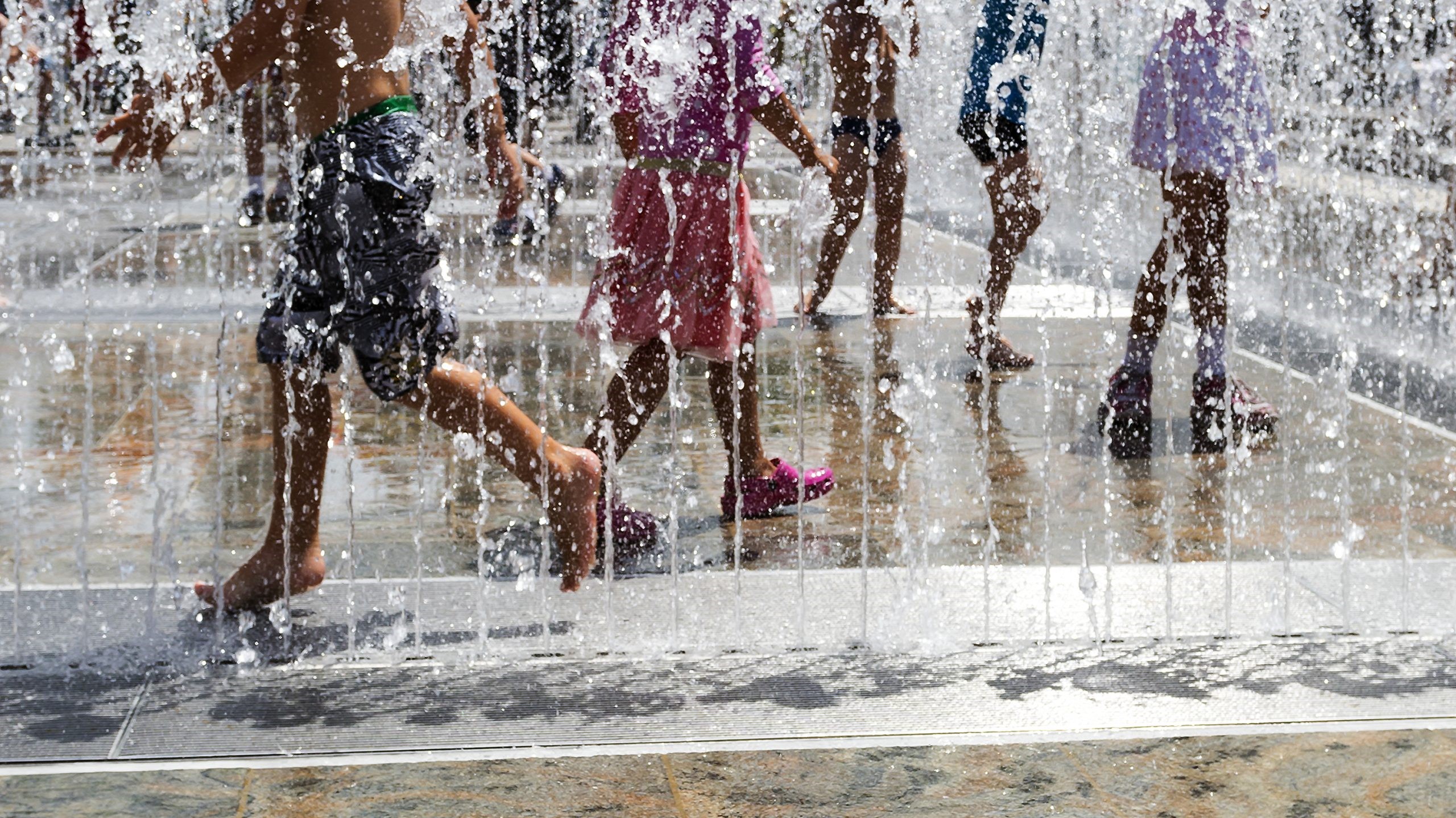Key points
- Splash pads are not always required to disinfect the water with germ-killing chemicals.
- The water at splash pads can spread germs and make users sick if the water is not adequately disinfected.
- Splash pad users can take a few steps to help stop the spread of germs in the water.

The risks
Splash pads (also known as interactive fountains, spray pads, spray parks, or wet decks) are aquatic venues that spray or jet water on users. Splash pads are usually designed so that standing water does not collect in the water play area to reduce the risk of drowning. Because of this design, splash pads do not always meet the local, state, territorial, or tribal definition of an “aquatic venue.” This means they are not always regulated, nor are they always required to disinfect the water with germ-killing chemicals. Splash pads can spread germs and make users sick if the water is not adequately disinfected.
How and why this happens
The water in some splash pads passes only once through the splash pad's pipes and then drains out (typically into a sewer system). In other splash pads, the water is recirculated, meaning the pipes drain sprayed water into a tank that is typically underground. Then the water goes through a filter and is disinfected with germ-killing chemicals (chlorine or bromine) before it is sprayed again.
When kids and adults play in splash pads, germs, poop, pee, and dirt can rinse off their bodies and shoes. Sprayed water can also rinse off any debris (such as human or animal poop, dirt, or leaves) from splash pad surfaces.
It can be difficult to keep the water in splash pads adequately disinfected. Spraying water reduces its chlorine or bromine level. Plus, when poop, pee, dirt, and debris get in the water, chlorine or bromine combine with them and break them down, meaning there is even less disinfectant available to kill germs. Swim diapers do not stop germs, poop, or pee from getting in the water.
Steps to take
Splash pad users and parents of young users can take a few steps to help stop the spread of germs in the water:
DO:
- Stay out of the water if you are sick with diarrhea.
- Shower before getting in the water.
- Take kids on bathroom breaks or check diapers every hour.
DON'T:
- Don't swallow the water.
- Don't let water go up your nose.
- Don't poop or pee in the water.
- Don't sit or stand on the jets. Sitting or standing on jets can rinse poop off your butt.
Resources
Fact sheets
More information
- Operation and Management of Splash Pads
- Swim Diapers and Swim Pants
- Preventing Swimming-related Illnesses
- Preventing the Spread of Germs in Splash Pads


